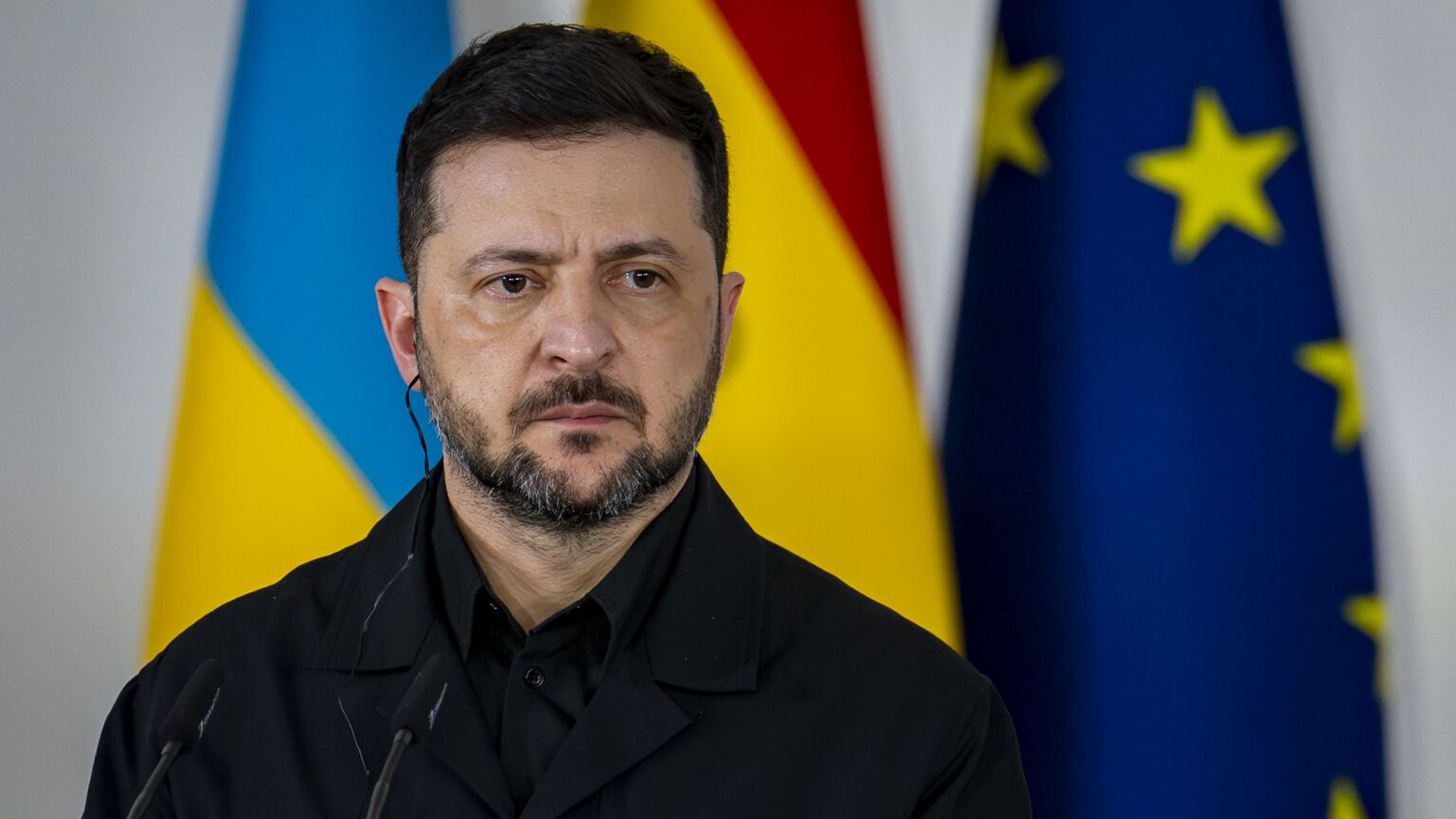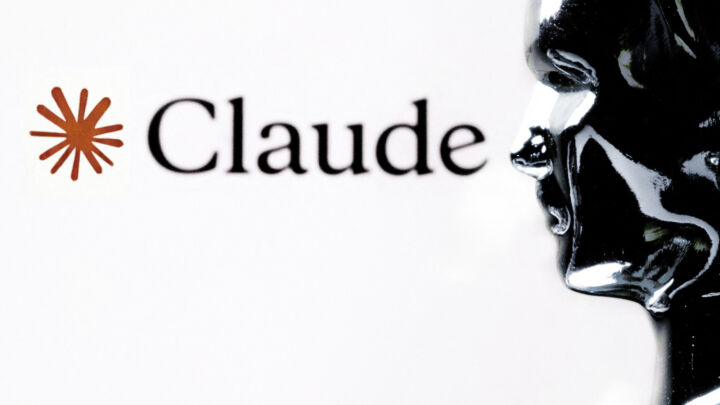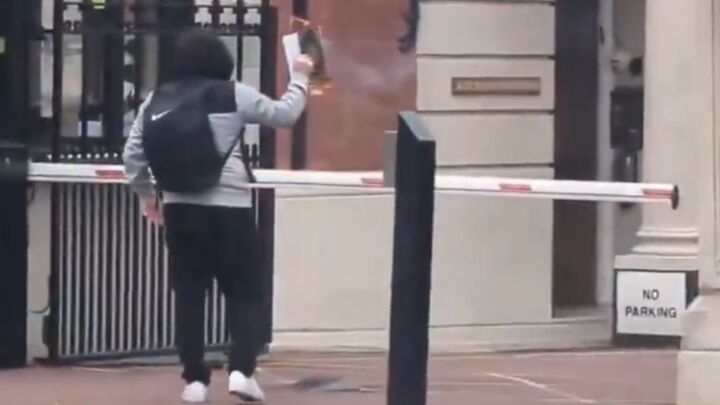Ukraine is facing a pivotal moment
Europe’s impotence has left Ukraine in an invidious position.

Want unlimited, ad-free access? Become a spiked supporter.
US president Donald Trump’s plan for peace in Ukraine has prompted a flurry of diplomatic activity among the warring parties. As Trump rather optimistically put it on Truth Social this week, ‘something good may just be happening’.
Drawn up last month by Kirill Dmitriev, Russian president Vladimir Putin’s special envoy, and Trump’s representative Steve Witkoff, the original 28-point plan was finally given an airing last week. Since then, amid interventions from Ukraine’s European backers, the plan has been revised during discussions in Geneva between US secretary of state Marco Rubio and Ukrainian president Volodymyr Zelensky’s chief of staff, Andriy Yermak. It is a sign of just how seriously this latest US-driven push for peace is being taken that Finland’s president, Alexander Stubb, known for speaking carefully, remarked that the ‘following days [could be] decisive’ in bringing this war to an end.
So just how decisive a moment is this? Has Trump’s peace plan really brought Ukraine and Russia a little closer to peace? The short answer: perhaps.
Despite the feverish speculation about the pro-Moscow provenance of the plan, with some claiming it was actually drafted by Russian officials, it’s worth pointing out that on some issues the plan is quite favourable to Ukraine. Take the key issue of Ukraine’s postwar security. In previous negotiations, Russia has insisted on Ukraine’s effective demilitarisation. (Indeed, it was partially this insistence, rather than Boris Johnson’s intervention, that scuppered the Istanbul peace negotiations back in April 2022.) Here, however, Ukraine’s troop numbers would be capped at 800,000, according to the latest iteration. This is a far larger armed force than Ukraine had on the eve of Russia’s full-scale invasion in 2022, and easily enough to deter future Russian aggression.
The plan also states that Ukraine would receive robust security guarantees from unspecified actors. And if Russia were to invade Ukraine again, ‘in addition to a decisive coordinated military response, all global sanctions will be reinstated’.
But in other parts, the plan cleaves to Russian positions. Ukraine would formally be prohibited from joining NATO. Crimea and above all the entire Donbas region would be recognised as de facto Russian territory. This means that Ukraine would have to cede all of Donetsk and Luhansk, despite Russia only occupying parts of both. Losing these well-defended positions would expose much of Ukraine’s eastern flank should Russia decide to have another attempt at deleting Ukraine’s sovereignty.
Crucially, despite these breaches of its red lines, the Ukrainian government has responded relatively positively to the plan. Ukraine’s national security adviser, Rustem Umerov, even said that a common understanding on the plan had been reached with the US.
Moscow, for its part, is keeping its cards very close to its chest. In many regards, the plan as it stands potentially breaches plenty of Russia’s own red lines, from the nature of the ‘robust’ security guarantees to the large size of Ukraine’s armed forces. But Putin has so far offered a broadly warm response to the plan. ‘In general, we agree that this could be the basis for future agreements’, he said on Thursday, adding: ‘We see that the American side takes into account our position.’ A US delegation is now set to head to Moscow early next week to discuss the plan further.
While the outcome of this latest peace drive remains uncertain, it has already achieved one thing. It has exposed the total impotence of the European powers. While the US has been mediating between Moscow and Kyiv, Europe has been carping from the sidelines. It has played a minimal role in discussions about the most significant military event on the continent since the Second World War.
Britain, France, Germany and other EU members have been doing plenty of posturing and bloviating. They even offered a counter 28-point peace plan in response to the proposal from the White House. And on Wednesday, European Commission president Ursula von der Leyen gave voice to the view of Europe’s elites, declaring that there could be no changing of Ukraine’s borders. ‘If today we legitimise and formalise the undermining of borders’, she said, ‘we open the doors for more wars tomorrow, and we cannot let this happen’.
Europe, then, is still talking up a total defeat of the Russian occupation. This is not because they’re bloodthirsty Russophobes, determined to fight Putin down ‘to the last Ukrainian’. Rather, it’s because European leaders have become ideological prisoners of their own rhetoric. Struggling and disoriented in the sphere of domestic politics, they have been using Ukraine’s heroic struggle for sovereignty to grandstand, and demonstrate some purpose and authority. So they now need to be seen to be supporting military objectives that they’re incapable of supporting in reality. They live in a fantasy realm where grand statements championing Ukraine stand in for arms and hard cash – both of which Europe’s elites are unwilling and unable to provide.
It’s not clear how Europe’s maximalist posturing really helps Ukraine. Exhausted, war weary and led by a government knee-deep in a corruption scandal, Ukraine now needs the war to end more than anyone.
The US peace plan may well form the basis of a way towards peace. Of course, getting Russia to concede on the key geopolitical questions of Ukraine’s sovereignty and right to self-defence, while getting Ukraine to concede territory, won’t be easy. But the impotence of the posturing European elites means there is no other game in town. Ukraine may soon be faced with the biggest decision of its post-Communist history.
Jacob Reynolds is a writer based in London and Brussels.
You’ve hit your monthly free article limit.
Support spiked and get unlimited access.
Support spiked and get unlimited access
spiked is funded by readers like you. Only 0.1% of regular readers currently support us. If just 1% did, we could grow our team and step up the fight for free speech and democracy.
Become a spiked supporter and enjoy unlimited, ad-free access, bonus content and exclusive events – while helping to keep independent journalism alive.
Monthly support makes the biggest difference. Thank you.










Comments
Want to join the conversation?
Only spiked supporters and patrons, who donate regularly to us, can comment on our articles.